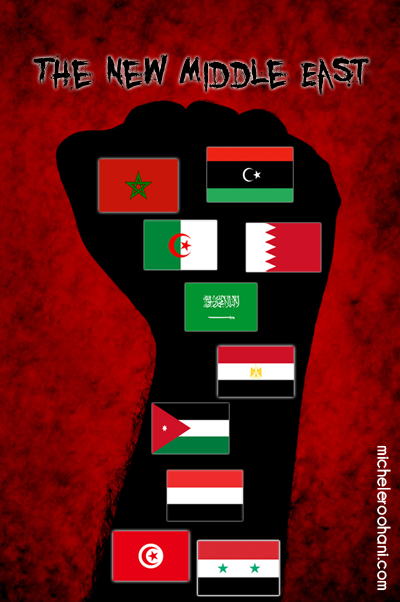
Rami G. Khouri submits the following onservations:
The worsening war in Syria has heightened regional and international concerns that it would destabilize the entire Middle East region. This assumes that the Middle East region, or its core Arab component, was in a relatively stable condition that was upset by the Syrian spillover. That is probably a wrong assumption, because the Arab regional order was already fraying at the edges and collapsing in some places well before Syria ignited.
The most striking attribute of the “Arab regional order” today is that it is not an order at all, but rather experiences total change in all dimensions. The Arab region had maintained a relatively stable political order for many decades, with conservative and nationalist governments and their respective Cold War great power supporters creating a balance of power that was only punctured intermittently by local conflicts that did not change the regional situation. Today, every single element that comprises the regional Arab order is in flux, so we can no longer speak of the “Arab world” or the “Arab region.” In due course, we will experience a new reality of more rational, legitimate, democratic and stable governance in many countries, so we should view the current situation more positively than negatively. But the transition will be chaotic, and will take some years.
The deterioration of the Arab order started in different countries at different times during the past two decades or so, as many countries could no longer provide the core functions of a sensible state: security, basic human services, socio-economic development, and the citizen’s sense of belonging to a country that offered one’s children a better future. The uprisings that erupted across the region as of December 2010 have been the single most important sign of a region-wide malaise that was gnawing at the core of Arab countries for decades, signaled in its earlier stages in the 1980s-90s by the rise of mass Islamist movements that reflected widespread citizen discontent and challenged autocratic governments.
The evolving regional order is now entering its most dynamic stage of change, with every component element transforming into something new. We see this at all levels. The state itself is undergoing changes in its legitimacy and authority within its own borders, and even some of those borders are likely to change (e.g., South Sudan). Many Arab countries have lost control of their frontiers, allowing all sorts of movements of people, drugs, arms and other things to occur in total chaos. The state’s former monopoly on the use of force is also changing, as many armed groups, political movements, tribes or individuals use weapons at will. In some situations, like Hizbullah in Lebanon, some non-state groups are militarily stronger than their state, and wage war with neighbors at will.
Civil society is in deep flux across the region, as new groups form and contest power in democratizing countries across North Africa, and battle to change power configurations in others in the eastern part of the Arab world. The individual citizen is adapting to new rules in some countries where citizens took to the street and removed autocratic regimes by the sheer force of their own will and activism. In countries defined by fighting and turbulence, citizens are retreating into primordial bands of ethnicity, tribe and religion to protect themselves and carve out their place in any new order that emerges from the transition.
In sum, as citizen, state, society, territoriality, and the instruments of violence all break free from their former authoritarian moorings and seek new configurations on the basis of the will of citizenries, the very concept of sovereignty is slowly being redefined across many Arab countries. The birth of a new public political sphere sees many new actors actively fomenting changes in national interests, policies and configurations.
This wholesale transformation in the short term creates a vacuum of authority, with neither national nor global powers fully asserting their control. So two new dynamics define the Arab region: the law of the jungle, and market forces. Both of these allow the power and interests of individuals to assert themselves, but they also favor the strong over the weak. They bring out the best and worst in individuals and organizations that are free to achieve their full potential -- but also are free to prey on others who cannot match their power.
For the first time in modern history, there is no coherent “Arab order” for now, but rather a dynamic arena in which hundreds of millions of individuals, thousands of organizations and 22 countries all compete for their role in a new regional order that will emerge one day soon. In the best circumstances, we will enjoy truly sovereign, stable states that are validated and strengthened by their own citizens. In the worst circumstances, the jungle and the market will rule for many decades.




1 comment:
Info show that team highly value health coverage plans.
In addition project N covers you see, the part A on an annual basis deductible.
my webpage ... tłumaczenia hiszpański Katowice
Post a Comment